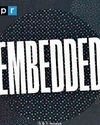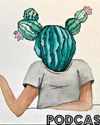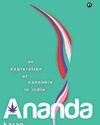
THAT, IF YOU CAN believe it, is how the venerable Dr Johnson, in what was the language’s guiding reference until the appearance of The Oxford English Dictionary 173 years later, chose to define me. Me! Ouch. But that was then, when Scotland was indeed among the only places where humans fed on me. Thankfully for me, and for your cholesterol ratios, I’ve come a long way in the 264 years since. And the famed Englishman’s dig at both me and the Scots now looks as foolish as his word for a burp of undigested meat. (For the record, the word is nidorosity.)
It has been a wild ride, and from inauspicious roots. I began as a seed that grew in pods at the tops of towering, five-foot-tall weeds called green oat grasses, which littered the wheat and barley fields of yore. About a century after Dr Johnson’s diss, a German immigrant grocer in Akron, Ohio, by the name of Ferdinand Schumacher realized—long after the Scots had— that once removed from my hull, chopped and cooked, I made a fine cereal. To process me, he figured out how to steam and roll me flat so that I could be cooked more quickly. Then he experimented with selling me in his small store.
At first, shoppers were resistant. But when the Civil War broke out and the Union started buying me to feed its soldiers, demand went crazy. My reputation as an affordable, healthy, stick-to-your-ribs food for humans took hold. Schumacher, who came to be called the Oatmeal King, founded the German Mills American Cereal Company to (barely) keep up with demand, and suddenly this weed became a very viable crop.
Denne historien er fra January 2022-utgaven av Reader's Digest India.
Start din 7-dagers gratis prøveperiode på Magzter GOLD for å få tilgang til tusenvis av utvalgte premiumhistorier og 9000+ magasiner og aviser.
Allerede abonnent ? Logg på
Denne historien er fra January 2022-utgaven av Reader's Digest India.
Start din 7-dagers gratis prøveperiode på Magzter GOLD for å få tilgang til tusenvis av utvalgte premiumhistorier og 9000+ magasiner og aviser.
Allerede abonnent? Logg på

ME & MY SHELF
Siddharth Kapila is a lawyer turned writer whose writing has focussed on issues surrounding Hinduism. His debut book, Tripping Down the Ganga: A Son's Exploration of Faith (Speaking Tiger) traces his seven-year-long journey along India's holiest river and his explorations into the nature of faith among believers and skeptics alike.

EMBEDDED FROM NPR
For all its flaws and shortcomings, some of which have come under the spotlight in recent years, NPR makes some of the best hardcore journalistic podcasts ever.

ANURAG MINUS VERMA PODCAST
Interview podcasts live and die not just on the strengths of the interviewer but also the range of participating guests.

WE'RE NOT KIDDING WITH MEHDI & FRIENDS
Since his exit from MSNBC, star anchor and journalist Mehdi Hasan has gone on to found Zeteo, an all-new media startup focussing on both news and analysis.

Ananda: An Exploration of Cannabis in India by Karan Madhok (Aleph)
Karan Madhok's Ananda is a lively, three-dimensional exploration of India's past and present relationship with cannabis.

I'll Have it Here: Poems by Jeet Thayil, (Fourth Estate)
For over three decades now, Jeet Thayil has been one of India's pre-eminent Englishlanguage poets.

Orbital by Samantha Harvey (Penguin Random House India)
Samantha Harvey became the latest winner of the Booker Prize last month for Orbital, a short, sharp shock of a novel about a group of astronauts aboard the International Space Station for a long-term mission.

She Defied All the Odds
When doctors told the McCoombes that spina bifida would severely limit their daughter's life, they refused to listen. So did the little girl

DO YOU DARE?
Two Danish businesswomen want us to start eating insects. It's good for the environment, but can consumers get over the yuck factor?

Searching for Santa Claus
Santa lives at the North Pole, right? Don't say that to the people of Rovaniemi in northern Finland